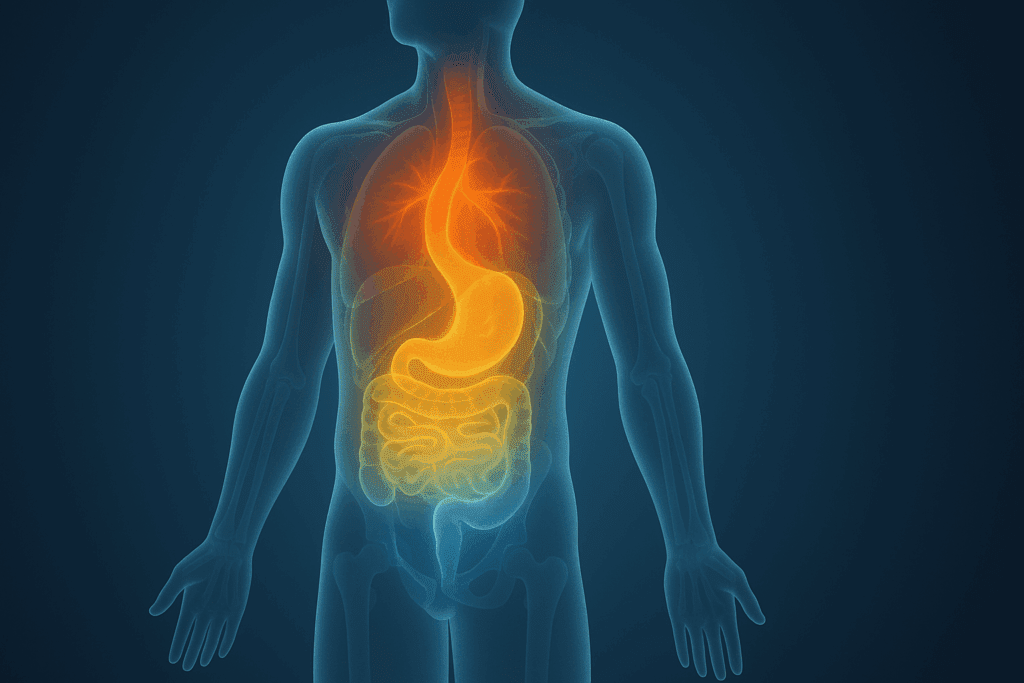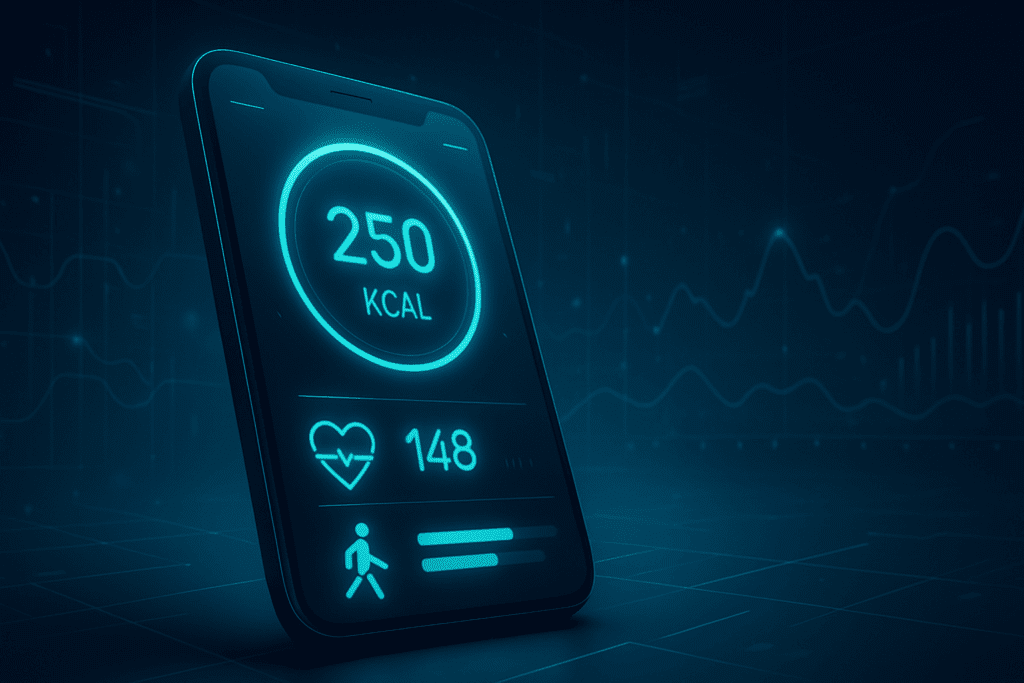Understanding how many calories you burn a day isn’t just a number-crunching game—it’s the foundation for everything from effective weight management to personalized fitness plans and long-term wellness. Whether you’re an athlete fine-tuning your performance or someone looking to improve your everyday health, knowing your daily caloric expenditure gives you the insight to make smarter dietary and exercise choices. For readers navigating the often-confusing terrain of health calculators, metabolic rates, and weight loss strategies, it’s essential to explore not just how to estimate calories burned, but also the science behind it, the tools available, and how individual differences affect the results.
You may also like: Expert-Backed Weight Loss Tips for a Healthier Lifestyle: What You Need to Know for Long-Term Weight Control and Wellness
In today’s health-conscious world, a growing number of people are asking, “How many calories does my body burn?” or “How many calories should I burn a day to lose weight?” These questions aren’t just rooted in curiosity—they reflect a larger need to better understand one’s metabolic profile, energy output, and how to align those insights with meaningful goals. From resting metabolism to activity burn calculators, this comprehensive guide will help you discover the most accurate, medically informed ways to answer the critical question: how to know how many calories you burn a day.

Understanding the Basics of Calorie Burn and Energy Expenditure
The number of calories your body burns each day is a combination of several key components: your Basal Metabolic Rate (BMR), the Thermic Effect of Food (TEF), and your Physical Activity Level (PAL). The BMR represents how many calories your body uses simply to stay alive—this includes breathing, circulating blood, and maintaining body temperature. It’s the energy you’d expend if you stayed in bed all day. Most people are surprised to learn that BMR accounts for the largest portion of daily calorie expenditure.
Next is the Thermic Effect of Food, which refers to the calories burned during digestion and nutrient absorption. Though smaller in percentage—roughly 10% of total daily calorie burn—it still plays a measurable role in your metabolic output. Lastly, physical activity, including everything from structured workouts to routine daily movement like walking or cleaning, completes the equation. Understanding this triad is essential when using a calories burned per day calculator or a calorie estimator for exercise. Each factor contributes differently to how many calories you burn a day, and accurate calculations depend on integrating all three.

How Your Weight, Height, and Age Affect Calorie Burn
When trying to estimate how many calories you burn in a day, it’s crucial to consider how personal metrics like weight, height, age, and gender come into play. For instance, heavier individuals typically have a higher BMR because their bodies require more energy to sustain basic functions. Similarly, taller people often have more body mass, which can also increase calorie burn. Age is another critical factor—metabolism tends to slow down as we get older, partly due to a loss in lean muscle mass and hormonal changes.
The best calorie burn calculators allow you to input your specific data—your height, weight, age, and gender—to provide a customized estimate of how many calories your body burns at rest and during various activities. These calculators often use validated equations like the Harris-Benedict or Mifflin-St Jeor formulas, both of which have been vetted by clinical research and used by dietitians. By using a “how many calories do I burn by weight and height” calculator, you’re moving toward a far more individualized and actionable understanding of your daily energy output.
How to Find Calories Burned Using a Calculator
If you’re looking for a practical way to figure out how many calories you burn, digital tools like a calories burned calculator or an exercise kcal calculator are among the most accessible and informative options. These calculators typically require you to input personal metrics along with the duration and intensity of your physical activity. Whether you’re walking, running, swimming, or lifting weights, these tools estimate your energy expenditure with remarkable precision.
Many people find value in using a walking calorie calculator or a walking to lose weight calculator, especially since walking is one of the most universally accessible forms of exercise. These tools allow you to input your walking speed, terrain (flat vs. uphill), body weight, and time spent walking to determine calories lost during the activity. You can also use a calories to exercise converter to translate how much exercise is needed to burn a set number of calories—for example, how many minutes of walking it takes to burn off a 300-calorie snack. These calculators help bridge the gap between abstract numbers and real-life activity, offering actionable insights for weight control and energy balance.

What Is My Calorie Burn Without Exercise?
A question that often arises in discussions about metabolism is, “What is my calorie burn without exercise?” This refers primarily to your BMR and the calories burned through passive activities like sitting, sleeping, and even digesting food. While these might not seem significant, the cumulative energy spent on involuntary bodily processes can be considerable—often around 1,200 to 2,000 kcal per day depending on your body composition and genetics.
Knowing how many calories your body burns a day without exercise is particularly useful for those recovering from illness or injury, or for people who are sedentary due to lifestyle or age. Tools like a kcal burned calculator or a calories spent per day tracker that focuses on resting metabolic rate can offer insights into how many calories you need to maintain basic function. From this baseline, you can make informed decisions about caloric intake for weight maintenance or loss, even in the absence of regular workouts.

The Role of Exercise in Boosting Daily Calorie Burn
Exercise significantly increases your total daily calorie expenditure, and using an exercise calorie calculator can help quantify the effect of specific workouts. Whether it’s resistance training, cycling, or high-intensity interval training (HIIT), each activity burns a unique number of calories depending on intensity, duration, and your individual physiology. The calories spent calculator often provides data not just on calories burned during the activity, but also on the post-exercise oxygen consumption—commonly known as the “afterburn effect”—which elevates your metabolism for hours after your workout ends.
When using an activity burn calories calculator, it’s helpful to input accurate information, such as your current body weight and the exact length of your activity session. This will improve the precision of your estimate. Many calculators even include the option to calculate how many calories to burn a day to lose weight, offering helpful guidelines for those aiming for fat loss. In practice, combining strength training with cardiovascular activity is one of the most effective ways to boost your daily burn, increase muscle mass, and create a sustainable calorie deficit without relying on excessive dieting.
How Walking Impacts Daily Caloric Expenditure
Walking is often underestimated as a tool for weight control and improved health, yet it can significantly impact your overall energy expenditure. Using a calories lost walking calculator or a how much walking to lose weight calculator can show just how effective this form of movement can be. For example, a 160-pound person walking briskly for 30 minutes can burn approximately 150 calories, depending on pace and terrain.
One of the benefits of walking is that it can be easily integrated into daily life—commuting, running errands, or simply taking short breaks during the workday. The walking calorie calculator allows you to quantify these incidental activities, helping you see how small changes in routine can accumulate meaningful calorie burn throughout the day. Whether you walk for 10 minutes or two hours, knowing how to estimate calories burned from walking can empower you to make movement a consistent part of your wellness strategy.

Using a Calorie Counter Burned Tool for Daily Tracking
For individuals actively managing their weight or trying to fine-tune their nutrition, a calorie counter burned tool can offer day-to-day feedback on energy expenditure. These trackers often sync with fitness apps or wearables, automatically recording your physical activity and calculating your total daily burn. Over time, this provides a data-driven snapshot of how many calories you burn a day, which can be invaluable for adjusting your caloric intake and workout routines.
These tools also make it easier to detect inconsistencies or plateaus. If you’re not seeing expected results, comparing your estimated calorie intake with data from your calories burned calculator can help identify gaps in energy balance. Moreover, using these trackers promotes long-term accountability and supports behavior change—two essential elements for sustainable health improvement. By seeing your calories spent per day in real-time, you gain greater control over the variables that influence weight and metabolism.
Calculating How Many Calories to Burn a Day to Lose Weight
One of the most common reasons people seek out information about calorie burn is to answer the question: “How many calories should I burn a day to lose weight?” The general rule of thumb is that creating a calorie deficit of 3,500 calories will result in roughly one pound of fat loss. This means burning 500 more calories per day than you consume will result in about a one-pound weekly weight loss. However, this is a simplification, and real-world results depend on numerous individual factors including metabolic adaptation, exercise frequency, diet quality, and hormone levels.
A how many calories to burn a day to lose weight calculator can personalize these estimates by factoring in your BMR, activity level, and weight-loss goals. These tools help determine how much of a deficit is appropriate without compromising your health or triggering muscle loss. For those focused on preserving lean mass, combining exercise with a moderate caloric deficit often proves more effective than extreme restriction. Using an exercise calorie calculator in tandem with a calorie intake tracker allows for a more nuanced and sustainable approach to fat loss.
How to Know How Many Calories You Burn Each Day Accurately
Achieving an accurate estimate of your total daily calorie burn requires a combination of methods, tools, and consistent monitoring. Start by determining your BMR using a scientifically validated formula or calculator. Next, add an activity multiplier based on your daily movement level—ranging from sedentary to very active. Use wearable devices, an activity burn calories calculator, or even a calories spent calculator to log exercise-related energy expenditure. You can then combine these values to understand your complete daily burn.
For even greater accuracy, some people opt for professional testing such as indirect calorimetry, which measures oxygen consumption to estimate real-time metabolic rate. However, for most individuals, using an advanced calories burned per day calculator and consistently updating it with real-world activity data provides a reliable and actionable estimate. Over time, tracking fluctuations and patterns can help you adjust your routine to better support your health goals.
Individual Variability and Factors That Influence Calorie Burn
While calculators and estimators provide helpful guidance, it’s important to remember that calorie burn is not a fixed number. Stress, sleep quality, hormone fluctuations, and muscle mass all affect your metabolism. For example, someone with more lean muscle will burn more calories at rest than someone of the same weight with a higher body fat percentage. Similarly, thyroid function plays a role in regulating metabolic speed, and imbalances can either suppress or elevate calorie burn independent of physical activity.
Another factor that often gets overlooked is non-exercise activity thermogenesis (NEAT), which encompasses everyday movements like fidgeting, standing, or typing. These seemingly insignificant motions can add hundreds of calories to your daily total. When using a calorie estimator exercise tool or wondering how many calories you burn by weight and height, it’s important to keep these nuances in mind. They underscore why daily fluctuations are normal and why personalized tracking will always be more valuable than one-size-fits-all estimates.
The Power of Data-Driven Decisions for Long-Term Wellness
Accurately estimating how many calories you burn each day goes beyond weight loss—it’s about fostering awareness, balance, and control in your health journey. When you know how many calories your body burns, you’re better equipped to make informed choices about your diet, fitness, and overall lifestyle. Tools like a walking to lose weight calculator or a how much calories do I burn a day calculator provide real-time insights that can improve motivation and drive better results.
Moreover, using a calories to exercise converter or activity-based kcal burned calculator reinforces the concept that all movement matters. It empowers individuals to move away from punitive, restrictive approaches to weight control and toward a more holistic, sustainable wellness model. Whether your goal is to lose fat, gain muscle, or simply feel more energized, having accurate calorie burn data helps eliminate guesswork and brings clarity to your daily decisions.
Frequently Asked Questions: How to Know How Many Calories You Burn a Day
1. Can stress or poor sleep affect how many calories your body burns a day?
Yes, both stress and sleep deprivation can significantly influence how many calories your body burns a day, though in ways that are often overlooked. Chronic stress elevates cortisol levels, which may reduce muscle mass over time—lowering your basal metabolic rate and your overall calorie burn. Similarly, lack of sleep impairs glucose metabolism and reduces leptin, the hormone that regulates hunger and energy balance, leading to decreased energy expenditure and increased fat storage. Using a calories burned calculator won’t always reflect these subtler physiological shifts unless you adjust inputs based on lifestyle factors. If you’re trying to estimate calories burned more accurately, factoring in sleep quality and stress management is just as essential as logging workouts in your exercise kcal calculator or calories to exercise converter.
2. How reliable are wearable devices compared to a manual calories spent calculator?
Wearable fitness trackers have become incredibly popular, but their reliability can vary depending on the device and the activity being measured. While they provide a convenient way to monitor heart rate and activity, they may over- or underestimate how much calories you burn a day depending on how sensitive their sensors are or whether your movement patterns fall within their algorithmic range. In contrast, a calories spent calculator that uses validated equations and includes your exact weight, height, and activity level tends to be more accurate—particularly for non-step-based movements like cycling or strength training. Ideally, use both: wearable data for day-to-day insights and a manual or app-based calorie estimator exercise tool for recalibration and planning. This hybrid approach offers a fuller picture of your actual calories burned per day.
3. Why do two people doing the same workout burn different amounts of calories?
Several factors explain why identical workouts produce different energy expenditures in different individuals. Your age, muscle mass, metabolic rate, and even hormonal health influence how many calories should you burn a day for a given fitness routine. For example, someone with higher lean muscle will burn more calories doing the same run as someone with a higher body fat percentage. That’s why a personalized exercise calorie calculator or how many calories do I burn by weight and height tool is more reliable than general charts. In addition, the activity burn calories calculator adapts to your unique physiological characteristics, ensuring that your calorie data reflect your body’s actual output rather than generic assumptions.
4. Is there a difference between a kcal burned calculator and a calories burned calculator?
Though often used interchangeably, “calories” and “kcal” technically refer to the same thing in dietary contexts—1 kilocalorie equals 1,000 small calories, but nutrition labels simplify by using “calorie” to mean “kilocalorie.” So, a kcal burned calculator and a calories burned calculator perform the same function: they estimate energy expenditure based on your weight, activity, and duration. However, more advanced tools may specify “kcal” to distinguish themselves from broader calorie-counting apps, especially in clinical or academic settings. Whether you’re using a calorie counter burned feature or a walking calorie calculator, understanding the terminology ensures you’re interpreting your numbers correctly. Always confirm units when exporting or comparing data from different platforms.
5. Can walking alone help you reach your daily calorie burn goals?
Absolutely—when approached strategically, walking can be a powerful contributor to your daily calorie burn. Tools like the walking to lose weight calculator or calories lost walking calculator allow you to customize your walking sessions based on pace, terrain, and body weight. For those with busy schedules, using a how much walking to lose weight calculator can demonstrate how even short walking bursts across the day can add up to significant caloric output. Moreover, walking can be easier to sustain long-term compared to high-intensity training, especially for beginners or older adults. Integrating a walking calorie calculator with a broader activity burn calories calculator can help you assess where walking fits into your comprehensive daily burn strategy.
6. How do hormonal imbalances influence how many calories do you burn a day?
Hormones play a critical, often underestimated role in regulating metabolic rate. Conditions such as hypothyroidism, polycystic ovary syndrome (PCOS), or insulin resistance can suppress how many calories does your body burn a day, making it more difficult to lose weight despite consistent effort. For people with these conditions, relying solely on a how much calories do I burn a day calculator may yield misleading targets. Instead, tracking with a calorie estimator exercise tool over time, alongside medical oversight, allows for better adjustments based on individual response rather than theoretical norms. Understanding how to find calories burned within this context requires a layered approach, incorporating lab values, hormone levels, and personalized interventions.
7. Should calorie burn estimations differ between rest days and workout days?
Yes, your calories burned per day can vary widely depending on whether you’re engaging in physical activity. On rest days, your calorie burn without exercise is mostly determined by your basal metabolic rate and incidental movement, making tools like a what is my calorie burn without exercise calculator particularly useful. On workout days, however, a calorie counter burned tracker or exercise kcal calculator should be used in combination to factor in your total physical exertion. This distinction is vital for individuals using a how many calories to burn a day to lose weight model, as failing to account for variability can lead to under-eating or stagnation. Rotating between different calculator types depending on activity level improves both accuracy and metabolic balance.
8. How often should you recalculate your daily calorie needs?
It’s recommended to reassess your calories spent per day every 4–6 weeks, especially if you’re actively losing or gaining weight. Your body composition and metabolic rate adjust to changes in activity, diet, and weight—which can shift how many calories should I burn a day to maintain or lose weight effectively. If you’re tracking via a how many calories do I burn a day calculator, updating your inputs—like weight and activity frequency—ensures that you’re working from current data. Additionally, if you experience life changes such as illness, pregnancy, or a new medication, your baseline may shift significantly, requiring a full recalibration using an updated calories spent calculator or calories burned calculator to reflect your new physiology.
9. What’s the best approach if your calorie burn estimates feel inaccurate?
If your calorie burn estimates seem too high or low, first assess whether your inputs are as specific as possible. Generic entries in a calories to exercise converter or activity burn calories calculator may not capture nuances like terrain, temperature, or your true effort level. Consider using multiple data sources—such as wearables, a how much calories should I burn a day app, and manual journaling—to triangulate more accurate results. You can also validate findings by comparing them with measurable outcomes like weight change or energy levels. Advanced users might even integrate oxygen consumption metrics from lab testing, although tools like a how to know how many calories u burn a day calculator are sufficient for most health-conscious individuals if used with care.
10. Are there long-term benefits to knowing how many calories do u burn a day?
Definitely. Understanding how many calories do u burn a day promotes self-awareness, goal alignment, and long-term consistency in both fitness and nutrition. Over time, this knowledge helps prevent weight regain, supports sustainable eating habits, and reduces the risk of chronic conditions like Type 2 diabetes and cardiovascular disease. It also demystifies the process of energy balance—empowering users to make smarter choices without falling prey to diet fads or misinformation. By using tools like a how many calories do I burn by weight and height calculator or an exercise calorie calculator, individuals develop a long-term mindset toward health rooted in data rather than guesswork. Ultimately, knowing how to know how many calories you burn can be a catalyst for lifelong wellness and metabolic efficiency.
Final Thoughts: Why Knowing Your Calorie Burn Is a Game-Changer for Health and Wellness
In the ever-evolving landscape of health, nutrition, and weight management, understanding how to find calories burned and how many calories you burn a day remains one of the most practical and empowering insights. Whether you’re using a calorie burn calculator, a walking calorie calculator, or exploring how much calories should I burn a day to achieve a specific goal, the knowledge you gain is transformative. This understanding not only equips you to tailor your diet and exercise more effectively, but it also helps prevent common pitfalls such as under-eating, overtraining, or relying on ineffective one-size-fits-all plans.
The science of caloric expenditure is nuanced, but thanks to expert-backed tools and personalized estimators, anyone can gain a clearer picture of their body’s unique needs. So whether you’re calculating how many calories do I burn a day with a calculator or just trying to get a better sense of your activity levels, remember that data-informed choices lead to more sustainable outcomes. By embracing this knowledge, you position yourself not only to reach your short-term goals but to thrive in your long-term journey toward wellness.
Further Reading:
How Many Calories Do I Burn in a Day?
How Many Calories Do You Burn Every Day?
Calculating how many calories are burned in a day


